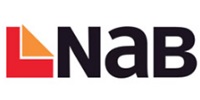
Top stories






More news


Marketing & Media
Ads are coming to AI. Does that really have to be such a bad thing?













Many businesses believe that advertising is a major expense that shows very little in the way of quantifiable results. Although far from an exact science, Dr Kennedy presented a few models that can guide practitioners and justify the expense to others. Firstly, she stated that advertising works and does 'nudge' sales.

However, mass activations (lots of reach) are vital for brand growth, given that light buyers generate most of any sales lift. Although there is no single or simple formula to determine an effective advertising budget, she did offer some tried and tested models that can be used as frameworks. She stressed that one, or a combination of these, can be used depending on the task. It does however, require marketers to crunch the numbers and do more than rely on 'gut feel' or simply use the previous year's adspend as a yardstick.
Here are three approaches for budgeting that she recommends from a scientific perspective:
• The external approach
Using the "Advertising intensiveness law" - JP Jones documented the empirical relationship between share of voice (SOV) and share of market (SOM) as a reference. Simply put, there is empirical evidence that suggests marketers should match advertising spend to their share of market.
However, using these two metrics, Jones found that:
(a) Large brands can afford to spend slightly less on advertising without significant loss of share but conversely, new and small brands should overspend slightly more than their share of market. She warned that big brands should be wary of 'milking' their brands because of their strength and quoted that the slowdown in advertising can accelerate a rapid fall in sales. For new products, there is a minimum level of spend needed to reach a desired market share.

(b) The profit approach - Although theorem based and algebraic, this one will please the bean counters. It is all about ad elasticities defined as the percentage change in sales for a 1% change in ad spend. They are also similar to price elasticities - although the formers are positive and the latter negative! Here, the empirical generalisation is that if advertising increases by 1%, sales or market share on average will increase by 0.1%. The key benefit is the link to profits, where if ad elasticity is 0.1, then the optimal advertising budget is 10% of gross profits.
(c) The task objective approach - On this bottom up approach, the marketer must determine his/her goal. Is the goal growth or is it about maintaining sales. Maintenance requires an audit on the physical availability of your brand as well as a complimentary balance of mental availability to nudge category buyers. If it's growth, then the targets are split into three key defaults that have a material impact on the budget:
2) Plan for continuous presence (not frequency but regency or for as many weeks as possible once)
3) In big media that reaches the most category users - especially the light and non-users in the categoryTo sum up, Dr Kennedy reminded the industry that it is necessary to be clear on what advertising can do and to know how to measure its effects on sales, to build solid budget cases.
Finally, to optimise the budget, Kennedy reminded us that good 'copy' is essential. Brands with strong distinctive assets can refresh memory structures more effectively and give your ad-rands more bang for your buck.
For more information, go to www.marketingscience.info.